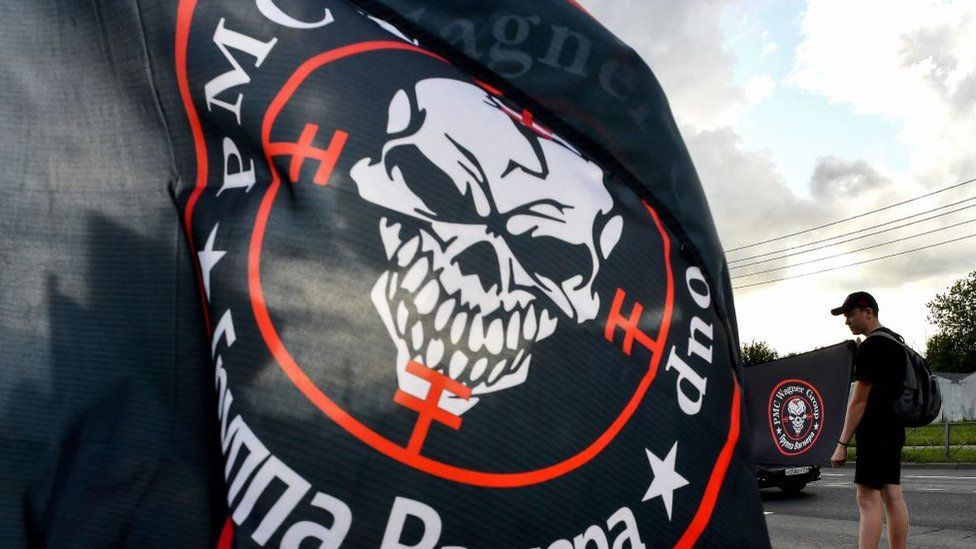-

-
-
Loading

Loading

The UK government has officially banned the Wagner paramilitary group from Russia, following the recent death of its founder, Yevgeny Prigozhin. The ban was approved on Friday and makes it illegal to be a member of or support Wagner. Those found guilty of aiding the paramilitary may face significant fines and up to 14 years in prison. Home Secretary Suella Braverman, who proposed the ban, described Wagner as a "threat to global security." She stated that the group's "destabilizing activities only continue to serve the Kremlin's political goals" and emphasized that they are terrorists, plain and simple. Supporting the group in any way, including arranging meetings, expressing support for its aims, or displaying Wagner's flag or logo, is now a criminal offense. Those convicted of supporting Wagner face up to 14 years in prison or fines. Wagner will be added to a list of 78 other proscribed organizations in the UK, including Hamas and Boko Haram. Founded in 2014 by Yevgeny Prigozhin, Wagner quickly became a crucial instrument of Russian state power under President Vladimir Putin. The group has supported Putin's allies in countries like Syria, Libya, Mali, and the Central African Republic. Since the invasion of Ukraine, Wagner fighters have played a significant role in the conflict in the eastern part of the country. They were responsible for some of Russia's notable victories in cities like Soledar and Bakhmut. However, the group's future has been uncertain after Prigozhin led a failed mutiny against Russia's military leaders earlier this year. He died in a suspicious plane crash along with other Wagner figures on August 23 and was buried in St Petersburg. The Kremlin spokesperson denied that the investigation into the crash had been slow and stated that it was an ongoing and complex process. Lawmakers in the UK have been consistently urging the government to ban Wagner. Last year, parliament's foreign affairs select committee published a report criticizing the government's handling of the group, particularly its lack of understanding of Wagner's influence outside of Europe. Despite the ban, experts suggest that it may have come too late to make a significant impact. Rival private military companies have been looking to take over Wagner in the absence of Prigozhin's leadership. Last week, the chair of the UK parliament's foreign affairs select committee called for a more strategic approach towards private military companies operating in conflict zones. The Labour Party's shadow Foreign Secretary also criticized the government for being slow to act and failing to keep up with changing threats to national security. It is believed that Russia has established numerous private military companies, each with varying loyalties. One group, PMC Redut, is already seeking to rival Wagner in Syria.